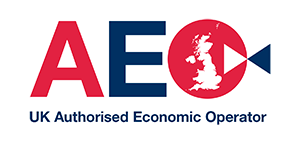
Customs for containers. What do you need?
It’s actually simpler than you might think. Here’s our beginner-friendly guide for container shipment customs.
Types of Containers
Most container loads can be classed as one of two categories: LCLs or FCLs.
Where LCLs (short for “Less than Container Loads”) implicate multiple consignees, FCLs (also known as “Full Container Loads”) are loads with only one consignee responsible.
As a “one-stop shop” for all sea and road movements, we can help you move goods and containers at all inventory-linked ports. Whether you’re transporting:
- Collapsible flat rack containers, used for out-of-gauge goods
- High cube containers, these have a large capacity that is beneficial for larger shipments
- ISO reefer containers, used for temperature-controlled, refrigerated goods
- Open top containers, for taller goods which will typically require a crane to lift
- Standard 20 and 40 foot box-style containers, used for dry goods contained in barrels, boxes, pallets or sacks
- Tank containers, used for petroleum and chemical-related liquids
- Tunnel containers, to make loading and unloading easier
We can help.
What customs documents do you need?
This will depend on a few things, including:
- What kind of containers/goods you are transporting
- Where you’re transporting from/to
- Whether you will be moving your goods through an inventory linked port
Inventory linked ports are linked to HMRC systems. They have their own customs control systems which enable goods to be cleared digitally and faster on arrival.
Because of this, businesses moving goods through an inventory linked port may not need to provide certain customs documents, such as a GMR.
Whereas, non-inventory linked ports are linked to GVMS, so standard import / export regulations will apply.
Earlier, we mentioned that the process of clearing your customs shipments is simpler than you might think. And that is absolutely true.
However, choosing the right customs agent for your business is essential.
Why choose CustomsLink?
Deep sea shipments tend to call in directly to Felixstowe, London Gateway or Southampton, with feeder vessels from Rotterdam into Liverpool, Hull etc. also available. But no matter where your goods are coming from or going to, we can help.
What makes us the best GB customs clearance broker is the industry-leading service provided by our team of customs experts.
From ensuring swift clearance of fireworks into Felixstowe by liaising with port authorities and Trading Standards, to providing our IPAFFS service for chilled/food ambient goods, our experts & platform are there to support you 7 days a week.
Get in touch with us today and see how we can support your business with customs for container shipments.
At CustomsLink, we have all GB Seaports covered (including more than 100 inventory-linked ports) and we can clear shipments from anywhere in the world. Once you start clearing your Deep Sea imports with us, you'll wish you reached out to our experts sooner.








